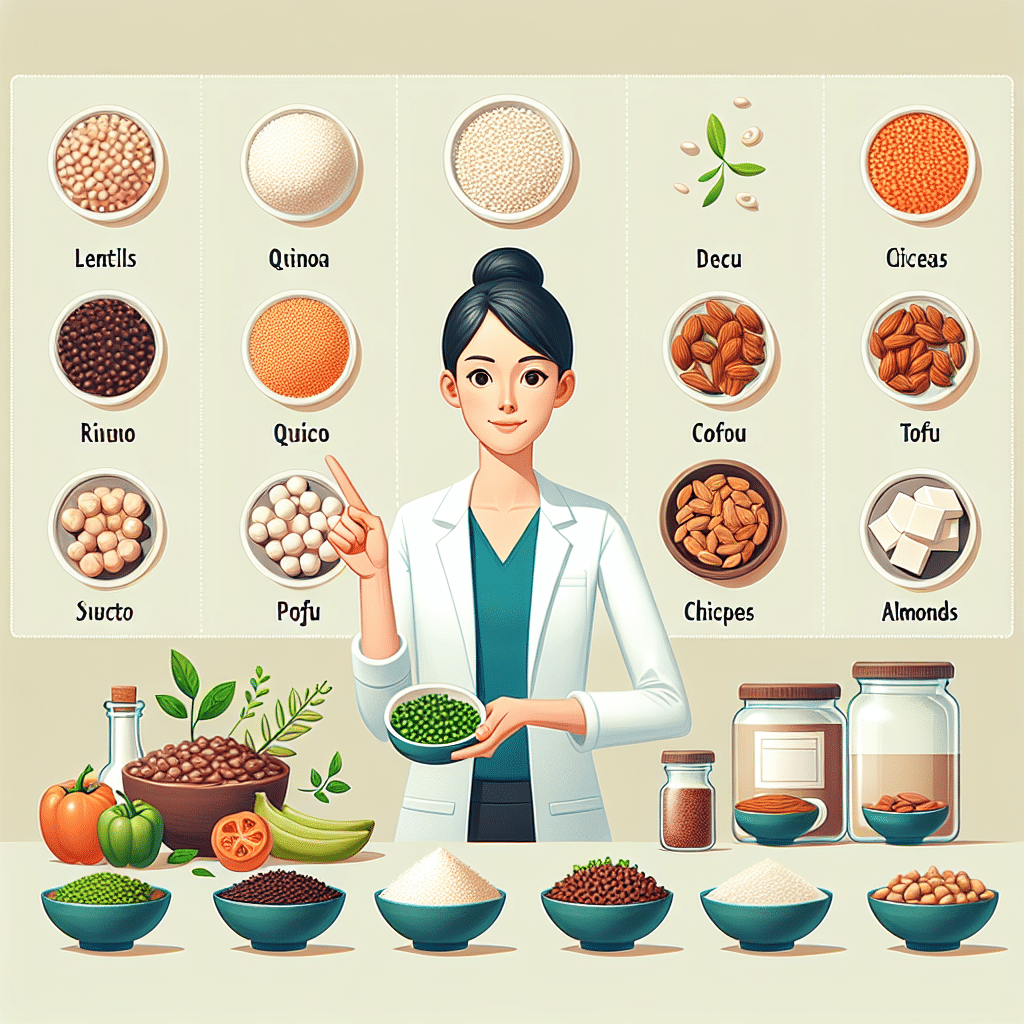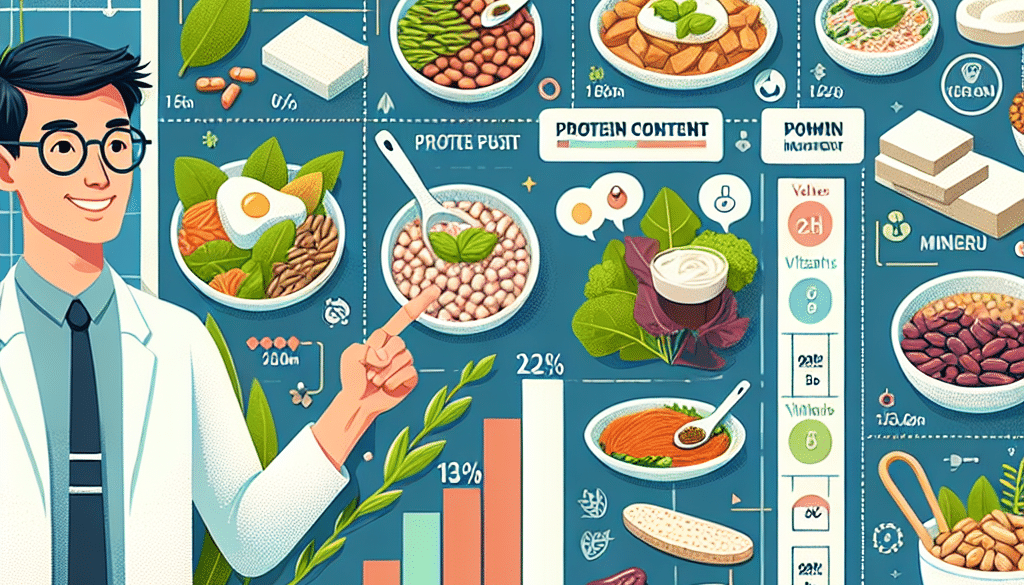Nutritional Optimization of Plant-Based Proteins: Dietitian’s Picks
-
Table of Contents
- Plant-Based Proteins: Dietitian’s Picks for Nutritional Optimization
- Understanding Plant-Based Proteins
- The Dietitian’s Top Plant-Based Protein Picks
- Optimizing Nutritional Value
- Case Studies and Statistics
- Practical Tips for Incorporating Plant-Based Proteins
- Conclusion: The Power of Plant-Based Proteins
- ETprotein: Your Partner in Plant-Based Nutrition
Plant-Based Proteins: Dietitian’s Picks for Nutritional Optimization

As the popularity of plant-based diets continues to rise, the focus on plant-based proteins has never been more pertinent. With concerns about sustainability, animal welfare, and health driving the shift, it’s essential to understand how to optimize the nutritional value of plant-based proteins. This article delves into the dietitian’s top picks for plant-based proteins and how to ensure you’re getting the most out of them.
Understanding Plant-Based Proteins
Proteins are fundamental building blocks for the human body, playing a crucial role in building and repairing tissues, creating enzymes and hormones, and supporting immune function. While animal proteins are known for being complete proteins—meaning they contain all nine essential amino acids—plant-based proteins often lack one or more of these amino acids. However, with careful planning, a plant-based diet can provide all the necessary protein and amino acids.
The Dietitian’s Top Plant-Based Protein Picks
Dietitians recommend a variety of plant-based proteins to ensure a well-rounded intake of amino acids and other nutrients. Here are some of the top picks:
- Legumes: Beans, lentils, chickpeas, and peas are excellent sources of protein and fiber.
- Nuts and Seeds: Almonds, walnuts, chia seeds, flaxseeds, and hemp seeds are not only high in protein but also contain healthy fats and omega-3 fatty acids.
- Whole Grains: Quinoa, buckwheat, and amaranth are complete proteins and provide additional nutrients like fiber and B vitamins.
- Soy Products: Tofu, tempeh, and edamame are versatile soy-based proteins that are complete proteins and can be used in a variety of dishes.
- Plant-Based Protein Powders: These can be derived from rice, pea, hemp, or other plant sources and are a convenient way to boost protein intake.
Optimizing Nutritional Value
To maximize the nutritional benefits of plant-based proteins, consider the following strategies:
- Combining Proteins: Eating a variety of plant-based proteins throughout the day can ensure you get all essential amino acids.
- Preparation Methods: Soaking, sprouting, and fermenting legumes and grains can enhance nutrient absorption and digestibility.
- Supplementing Wisely: B12, iron, zinc, calcium, and omega-3 fatty acids may be lower in plant-based diets, so consider fortified foods or supplements if needed.
- Caloric Density: Plant-based proteins often come with additional fiber and nutrients, making them more filling and nutritionally dense.
Case Studies and Statistics
Research has shown that plant-based diets can be nutritionally adequate and may offer health benefits. A study published in the American Journal of Clinical Nutrition found that plant-based diets are associated with a lower risk of heart disease, obesity, hypertension, type 2 diabetes, and certain types of cancer. Additionally, the Journal of Geriatric Cardiology reported that plant-based diets could improve body weight, lipid levels, and glycemic control.
Statistics from the Plant Based Foods Association indicate that U.S. retail sales of plant-based foods have continued to increase, outpacing total food sales. This suggests a growing consumer interest in plant-based proteins and their health benefits.
Practical Tips for Incorporating Plant-Based Proteins
Here are some practical ways to include more plant-based proteins in your diet:
- Start your day with a protein-rich smoothie using plant-based protein powder.
- Include a serving of legumes in your salads, soups, or stews.
- Snack on nuts or seeds, or add them to yogurt and oatmeal.
- Replace some or all animal proteins with tofu or tempeh in stir-fries and sandwiches.
- Choose whole grain bread, pasta, and cereals to increase protein intake.
Conclusion: The Power of Plant-Based Proteins
In conclusion, plant-based proteins are a sustainable and healthful alternative to animal proteins. By selecting a variety of protein sources and preparing them properly, it’s possible to achieve a nutritionally balanced diet that supports overall health. Whether you’re fully plant-based or simply looking to incorporate more plant-based options into your diet, the dietitian’s picks for plant-based proteins are a great place to start.
ETprotein: Your Partner in Plant-Based Nutrition
If you’re looking to enhance your plant-based protein intake, ETprotein offers a range of high-quality protein products that can help. Their selection includes organic rice protein, clear rice protein, pea protein, clear pea protein, and more. These products are non-GMO, allergen-free, and have a neutral taste, making them an excellent addition to any diet.
ETprotein caters to various industries, including nutraceuticals, pharmaceuticals, and food and beverage manufacturers. With a commitment to quality and customer satisfaction, ETprotein is a trusted supplier for those seeking to optimize their plant-based protein consumption.
About ETprotein:
ETprotein, a reputable protein Chinese factory manufacturer and supplier, is renowned for producing, stocking, exporting, and delivering the highest quality organic bulk vegan protein and plant proteins. They include Organic rice protein, clear rice protein, pea protein, clear pea protein, pumpkin seed protein, sunflower seed protein, mung bean protein, peanut protein etc. Their offerings, characterized by a neutral taste, non-GMO, allergen-free attributes, cater to a diverse range of industries. They serve nutraceutical, pharmaceutical, cosmeceutical, veterinary, as well as food and beverage finished product distributors, traders, and manufacturers across Europe, USA, Canada, Australia, Thailand, Japan, Korea, Brazil, and Chile, among others.
ETprotein specialization includes exporting and delivering tailor-made protein powder and finished nutritional supplements. Their extensive product range covers sectors like Food and Beverage, Sports Nutrition, Weight Management, Dietary Supplements, Health and Wellness Products, and Infant Formula, ensuring comprehensive solutions to meet all your protein needs.
As a trusted company by leading global food and beverage brands and Fortune 500 companies, ETprotein reinforces China’s reputation in the global arena. For more information or to sample their products, please contact them and email sales(at)ETprotein.com today.












